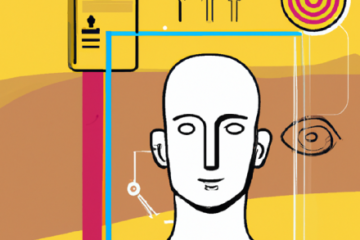Kumar Rajagopalan: The Experience Imperative – Retail is dynamic, are you?
VOICE OF EXPERTS
The experience imperative – Retail is dynamic, are you?
Kumar Rajagopalan is the Chief Executive Officer of Retailers Association of India.

Retail in India is becoming increasingly competitive. The country’s retail growth potential is attracting local, regional, national and international players to create new and improved retail offerings. Multiple channels like Online, Offline, TV, Direct-To-Home, Buyers’ clubs and so on, are creating new kinds of competitive spaces. And they are all here to stay!
The need of the hour
Thanks to readily available information, customers today are knowledgeable and are spoilt for choice. Cost-Price is becoming easily deducible for purchase decisions. This leads to commoditisation of brands leaving no clear competitive advantage.
A compelling competitive advantage for brands is a direct function of how every brand brings various initiatives together to create stories for their customers. The only sustainable retail brands today are the ones who have positioned their brands as synonymous to the experience they provide.
Brands can stop value erosion by adding experience to their mix
Retail interacts with consumers through various touchpoints like traditional media, social media, website and stores. It is important to create an experience that engages customers and delights them at every point of interaction. Brands that manage to create experiences above customer expectations at each touchpoint are the ones that help create mindshare. When mindshare is captured, market share follows.
According to a study by US-based Consumer Intelligence firm Walker, “By 2020, customer experience will overtake price and product as the key brand differentiator. It is the fulcrum on which a brand’s success will be built.”
Experience in retail is all about creating moments of truths that making customers come back to the brand again-and-again. The way people greet, the packaging on products, the innovation around product quality, look-n-feel, the speed and manner of delivery, the customer recovery process, predictive demand fulfilment etc. can all be experience creators.
The technology angle
Thankfully, retailers across the globe, especially in leading retail markets such as China have woken up to the importance of experience. They are now working on several fronts to up their experience quotient. Digital plays a key role in this journey. In China, KPMG found that all players with outstanding brands have continuously invested in building digital capabilities to meet changing consumer needs. They are leveraging technology in various areas such as marketing, payments, supply chain and logistics, and in-store analytics to provide customers with a better shopping experience.
A lot of retailers are investing in AI not just for analytics, but also for demand prediction and replenishment. Interestingly, on the front-end, brands in the home segment such as sanitary ware and furniture, have been early adopters of Virtual Reality. Done right, technology can help retailers create phenomenal customer experiences and reap the resulting benefits.
82% of the top-performing companies pay close attention to the human experience around the digital environment. Technology alone, however, cannot cure what ails customer experience as it is simply an enabler.
The challenge
Retail business leaders are aware that they need to continue to sharpen their focus on the customer and on the experience offered to them. However, “many enterprises have still not achieved effects from digital marketing or substantial improvements in customer experiences,” found KPMG China.
The challenge is that customer expectations about experiences are constantly being reset, thanks to new competitors and new experiences. At the same time, new technologies like Artificial Intelligence (AI), Machine Learning (ML), Predictive Analytics are radically changing the way brands engage and interact with their customers.
Considering the conundrum, is there a way that brands can meet customer expectations and get the experience imperative right?
According to a PwC report, they can. There is a formula for getting it right—the right culture, new ways of working and empowered talent is key to unlocking revenue opportunities through a better experience.
Technology influences how customers interact, embrace and spend with brands. Customers adopt technologies that increase speed, foster convenience, friendliness and knowledge. Contrary to popular belief, it is the customers who generate the revenue and employees only drive customer satisfaction. A close-knit integration of the human-machine relationship influences the aforementioned equation.
Is Technology Enough?
Most importantly, technology alone cannot solve experience problems. However, it can enable brands to understand the current scenario and take corrective measures to re-design their experience imperatives. What is required today is driving customer-centricity and think of innovation other than technology.
For instance, based on consumer feedback, the Mall of Emirates in Dubai introduced a concept called ‘Hands-Free Shopping’ for its customers. In it, shoppers are invited to drop off their shopping bags and collect them later or have them delivered anywhere at their convenience.
Another example of non-technology based customer experience innovation is by Future Group. They’ve revamped many of its stores and made it specially-abled friendly by installing wheelchair ramps, separate trial rooms and washrooms and even specially-abled friendly billing counters.
Experience is the sum total of many things, which retailers need to Identify, Improve, Manage & Repeat.
Kumar Rajagopalan is the CEO of Retailers Association of India (RAI). In his role at RAI, Kumar focusses on creating a positive trade environment for modern retail in India. Kumar is also a Director with Retailers Association’s Skill Council of India (RASCI) and an Independent Director on Board with Aeon Credit Service India Private Limited. Kumar brings with him over 30 years of profound knowledge and business experience, having worked as the Country Head – Retail Solutions at IBM. His responsibility included leading the business and solution development functions as well as closely working across the brand teams of IBM to define and execute the overall sales and thought leadership strategy for IBM India. A Chartered Accountant by qualification, Kumar has specialised in management consulting, taxation, audit and corporate matters at the start of his career. Over the years, he has witnessed success by taking up functions that require start-up or turn- around skills.


